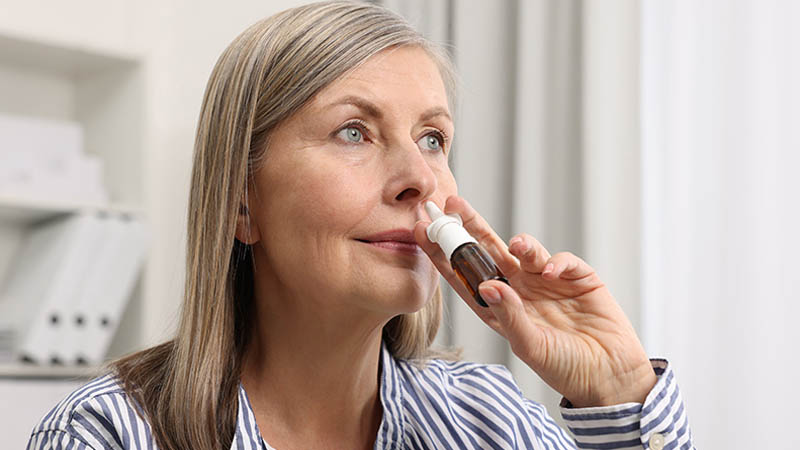With spring in full bloom and pollen counts on the rise, many individuals are reaching for hay fever remedies to combat sneezing, itchy eyes, and other allergy symptoms. However, a leading cardiac health expert has issued a stark warning: Some popular hay fever treatments may pose risks to those with existing heart conditions.
Julie Ward, a cardiac nurse with the British Heart Foundation (BHF), has highlighted potential dangers associated with common over-the-counter medications. While many treatments are safe when used correctly, individuals with high blood pressure or heart and circulatory diseases should exercise caution.
More: Chef Reveals 30-Minute Hack to Make Salmon Extra Crispy and Absolutely Delicious
More: Cutting Back on This One Food May Help You Live to 100, Say…
According to guidance cited by Express.co.uk and the Daily Record, options such as steroid nasal sprays, antihistamines, and decongestants are widely used to treat hay fever symptoms. But not all of these are equally safe for everyone. Ward reassures patients that “steroid nasal sprays are considered safe” for those with heart conditions, provided the user adheres to the recommended dosage.
However, she urges greater care with antihistamines, particularly less commonly used types. “Another type of antihistamine, called fexofenadine (Allevia or Telfast), can lead to a fast or irregular heartbeat, and you should talk to your doctor or pharmacist before taking it,” Ward explained. “Also, some older antihistamines, like chlorphenamine (Piriton), can cause drowsiness and so might not be the best choice if you already have fatigue from a heart condition.”

While loratadine (Clarityn) and cetirizine (Piriteze) are generally considered safe, Ward advises patients to carefully review medication ingredients and consult a medical professional before taking anything new.
She also warns against decongestants that contain ingredients such as pseudoephedrine (Sudafed), which constrict blood vessels. “This can raise your blood pressure and heart rate and cause palpitations,” she noted. The NHS also recommends individuals with cardiovascular conditions avoid these substances.
Ward advises, “If you need a decongestant, talk to your doctor or pharmacist, and always read the medicine information leaflet before taking a hay fever medication as some combine antihistamines with decongestants.”
More: “This Salad Literally Tastes Like a Pizza”: Emily English Shares Viral High-Protein ‘Pizza Salad’ Recipe
For those who experience any concerning symptoms, Ward offers clear guidance. “If you experience heart palpitations, which feel like your heart is racing or skipping a beat, after taking a hay fever medicine, stop taking it and consult your doctor.”
As hay fever season continues, Ward’s advice serves as an important reminder that even common medications can carry risks for individuals with underlying health conditions.
READ NEXT:
- Blake Lively speaks on violence against women amid Justin Baldoni feud
- Kate Middleton Reportedly Forced to Step Back from Key Role on Behalf of King Charles
- Trump’s Approval Rating Just Fell Below ‘Worst President in History’ — Even Biden Beats Him Now!
- Unexplained Bruising Could Be a Warning Sign of Blood Cancer, Charity Warns
- 12-Year-Old Girl Tied to Bed, Fed Cat Food by Mother and Grandmother

